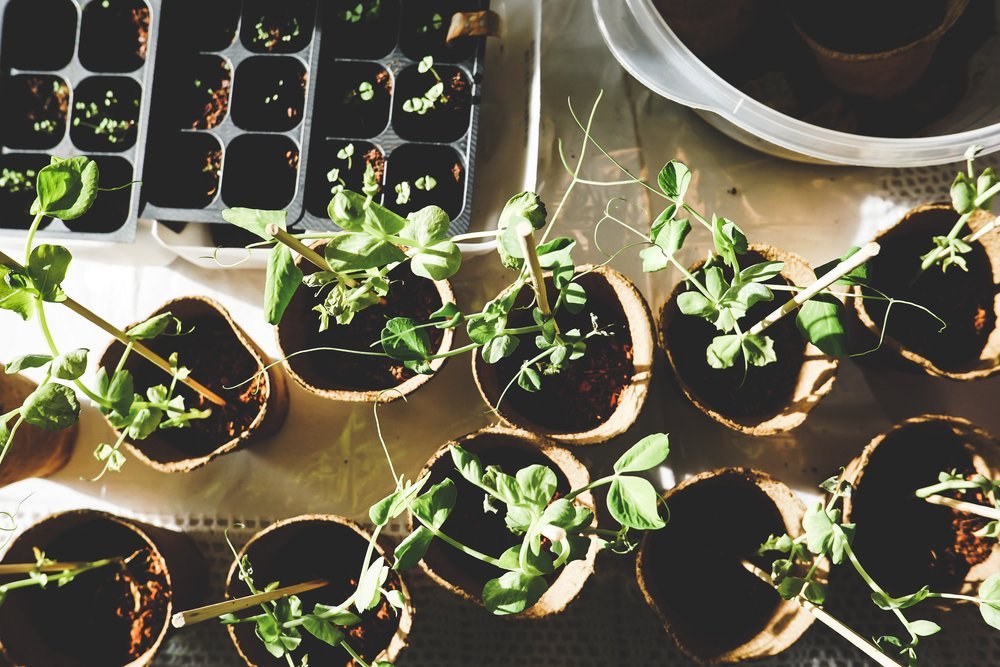Gardening for beginners – 10 tips
There are a lot of people who are new to gardening.
Find out how to get started, sow, plant, and build wildlife habitats by looking through our list of hints and tips.
Gardening is a great way to spend time with your family and consider the money at the same time.
Is there anything better than eating food that you've grown yourself, or having dinner outside with the smell of scented plants that you have grown? It can be hard to know when and how to start a garden, but we're here to help.
1. DISCOVER YOUR SPACE
Get to know your garden before you start.
South-facing or north-facing?
A good way to figure out what to grow where is to know where the sun is.
Soil type is also important.
Take a look at what's growing. If you see camellias, magnolias, and pieris, the soil is acidic. If you don't see these plants, the soil is more alkaline.
Making a soil test will even more help you figure out what plants you can grow.
2. DECIDE HOW TO PLAN YOUR GARDEN.
Sitting down to plan your garden is a great place to start.
There's no need to get carried away at the garden centre and buy plants that don't look good together and might not grow well in your area.
Having a plan will also help you think about how to use colour and structure wisely, which will help you make your garden look good all year long.
3. DISCOVER & LEARN HOW TO PLANT.
Planting your plants the right way will help them grow and live for a long time.
Weed and prepare the soil before you plant, and add mulch or fertiliser if needed. Make sure you do this before you plant anything.
If you're not sure how to plant something, look up how to do it on the internet instead of just hoping for the best.
Trees that are planted too deeply won't grow, and root-balls that are above the soil surface will dry out quickly, which will kill the plant.
4. FEED AND WATER YOUR PLANTS FREQUENTLY.
It's very important to know when and how to water plants.
As a general rule, water the root ball, not the leaves, because the roots are what take in the water.
It's better to soak the rootball once a week than to water it a little every day.
Feeding is also important. During the growing season, which is spring and summer, you should feed your plants every two weeks. If you're growing in a container, you'll need to feed more often.
5. BEGIN SMALL.
In the beginning, it can be tempting to take on everything at once.
Take it one step at a time.
To stop weeds from growing in areas you don't want to work on, you can cover them with cardboard or black plastic. You can do this while you work on another part of the garden.
6. PAY ATTENTION TO PESTS.
The majority of pests in the garden don't do much damage to plants and can be left alone. There are plenty of natural predators that will keep them in check.
However, some pest populations can become an infestation, and you need to do something about it. You
Keep an eye out for pests like aphids, slugs, and snails. This will keep your plants safe and save you a lot of heartache.
7. MAKE USE OF COMPOST
You can help the environment, wildlife, your wallet, and your garden all at the same time if you compost your kitchen and garden waste.
For a year, let the waste break down. Then, use it as a mulch around the base of plants in your gardens and vegetable gardens.
8. DON'T BE AFRAID TO CUT BACK.
Pruning plants can seem like a big job, but if you learn how to do it right, you'll get plants that look good, grow well, and are more likely to flower and fruit.
Pruning is all about knowing when to cut and how to cut and shape the plant.
9. TREAT WILDLIFE WELL.
New gardeners often see wildlife as the bad guys. Insects and their larvae eat plants, birds eat fruit, and mice nibble pea and bean seeds, so they think they're the bad guys.
But wildlife can be good for the garden, too.
Birds eat a wide range of garden pests, like slugs and snails, aphids, and caterpillars.
Bees help us grow food.
Frogs, toads, hedgehogs, bees, butterflies, and birds are all important parts of a garden. Without them, it wouldn't be half as fun.
You can enjoy your space more if you build them homes and learn to share your garden with them.
10. HAVE FUN WITH YOUR GARDEN.
You should enjoy your garden, too.
Do not forget to take a moment to enjoy the fruits of your work.
Set up a place where you can read or eat with your friends and family.
A window is a good place to plant borders that you can see from inside. Hang bird feeders so you can watch them in action, too.











